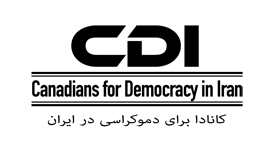Ten Islamic Republic Men Face Deportation From Canada
Canadian officials have told Iran International that 10 individuals affiliated with the Islamic Republic have been found “inadmissible” and must leave the country.
Canada Border Services Agency (CBSA) spokesperson Maria Ladouceur stated that “To date 10 individuals have been reported inadmissible by the CBSA for being a senior official in the Iranian regime.”
She added that nine of these individuals have been referred for an admissibility hearing before the Immigration and Refugee Board of Canada, as one of them has already left the country. The CBSA also urged Iranians residing in Canada to provide any information they have about affiliates of the Islamic Republic to the agency.
Only one of the 10 has been identified so far as Salman Samani, 42, a former high-ranking Iranian interior ministry official living in Toronto. As reported by Global News, Canadian authorities have initiated proceedings against the former deputy interior minister, who is the subject of sanctions imposed a year ago against officials of the Iranian regime. Anna Pape, spokesperson for the Refugee Board, confirmed that Samani's case “was referred for an admissibility hearing on November 10, 2023.”
The Interior Ministry is in charge of Iran’s domestic security and police branches, which have been implicated in widespread human rights abuses. Interior Minister Ahmad Vahidi is a former IRGC general and has been sanctioned by Canada, the US and Europe. The US Treasury has determined that Vahidi was responsible for police “deployed to subdue protests in Iran, including the ongoing protests over the death of Mahsa Amini.”
CBSA is also investigating about 100 people with status in Canada for potential ties to Tehran. In a statement provided to CBC News, the agency said that as of November 20, 2023, the it had reviewed approximately 17,800 visa applications for potential inadmissibility to Canada under the IRPA designation of the Iranian regime. As a result, 78 individuals were denied access to Canada.
Concerns about Canada serving as a safe haven for high-ranking Iranian officials were exacerbated after the identification of a former Tehran police chief at a gym near Toronto in 2021.
Under pressure from the opposition Conservatives and the Iranian-Canadian community, the Liberal government, under the leadership of then-public safety minister Marco Mendicino, designated the Islamic Republic of Iran as a "regime that has engaged in terrorism and systematic and gross human rights violations" under the Immigration and Refugee Protection Act (IRPA) in November 2022.
The deportation is in line with sanctions implemented in November 2022, which prevent senior members of the Islamic Republic from entering Canada. The measures were imposed after Mahsa Amini died in custody of Iran's so-called morality police for defying hijab laws. Amini's death garnered international condemnation and became a symbol of resistance against the repression of women under Iran's clerical regime. The incident ignited the boldest uprising against the ruling power since its establishment in 1979. Security forces crushed the uprising by killing about 600, arresting over 22,000 and hanging some of protesters.
In response, Canada classified Iran's government as a regime involved in "terrorism and systematic and gross human rights violations," leading to the effective exclusion of tens of thousands of Iranian officials and Islamic Revolutionary Guard Corps members from entering the country.
Canada severed diplomatic ties with Iran in 2012 due to concerns related to its pursuit of nuclear weapons and support for terrorist organizations including Hamas. The government has also been under pressure for years to list the IRGC as a terrorist organization. Those calls intensified after the IRGC shot down Ukraine International Airlines flight PS752 in 2020 as it was taking off from Tehran, killing all 176 people onboard, including 55 Canadians and 30 permanent residents.

